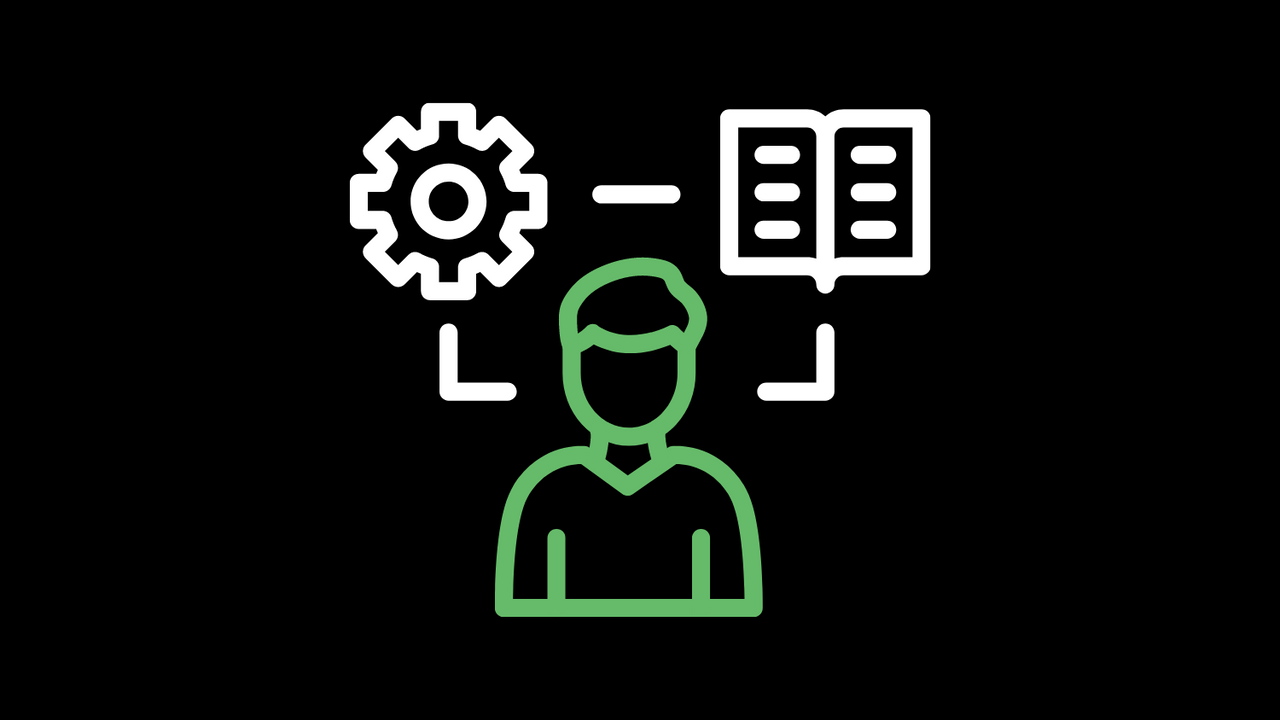
Are you being deliberate?
Oct 13, 2022Are you being deliberate?
Welcome to the Self-Performance-Strategies (S-P-S) Newsletter
“Purposeful practice has well-defined, specific goals.”
- Anders Ericsson
Nearly every day, I sprint up a set of steps in a local forest.
I could just walk up them.
But these steps are a part of my deliberate practice.
It takes me under a minute at a full pace to do this.
And I do it a few times before continuing my walk.
Here are the steps:

Nice picture Stephen; what have these steps got to do with deliberate practice?
Well, my friend, these steps are a part of valuable lessons in my fitness journey.
All my adult life, except for a few brief party years at university.
I’ve played football or soccer for the Americans reading.
Up until my late 30s, I trained with my team weekly.
Which is a type of deliberate practice.
But away from training, I would use 5km runs to keep fit.
Now you’re probably thinking that makes sense; good for you; 5km is a decent length to maintain your fitness.
I thought the same thing.
Funny how I was completely wrong.
Before we go further, going on 5km runs was obviously better than not doing anything.
Here’s the thing.
My practice didn’t match the game.
What I was doing to keep fit was not helping me improve.
In fact, it may have been restricting my football development.
I learned this lesson from Josh Waitzkin’s book, The Art of Learning.
It hit me while reading his deep dive into elite chess playing and mastering Taiji Push Hands martial art.
He talked about deep practice in situations that would happen in a game and focusing on the fundamentals.
I realized my fitness training for football was wrong.
Footy is a stop-start game; 5km runs are not.
In footy, you sprint hard, are on your toes a lot, and need strength for short bursts.
During 5k runs, you are training your body for long-distance endurance.
That does not help improve the muscles used for football.
Yes, I could have done some sprints during my 5km run.
But I decided to focus on fundamental muscle groups and actions I use in the game.
I am not a fitness coach, but it made sense for my supporting fitness to match the game I played.
It made so much sense I couldn’t believe it took 30+ years to figure it out.
I started doing full-body kettlebell workouts to help build those fast twitch muscles.
But the deliberate practice that had the most impact was the step sprints.
I go on a 30-minute walk to get to the steps.
This warms my body up and is fun and meditative.
Then I hit those steps hard.
Some days too hard.
Then I walk home, regulating my breath and focusing on nose breathing.
The impact this had on my soccer fitness was impressive.
I went from being a player on the team with average fitness to being one of the fittest.
A small shift in how I practiced significantly impacted the game I played.
I have now used this lesson in many other areas of my life.
In fact, writing daily on Twitter and producing at least one thread a week over the last year is the deliberate practice behind this newsletter.
Ask yourself: What can you do in the micro that affects the macro?
I also fell down a hole of researching how to do deliberate practice, and it blends well with the world of productivity and self-performance.
You must understand how to improve your craft if you are a business owner, leader, or executive.
When you hit a plateau in life and business, it will connect to how you work and practice.
One thing you probably have in common with me is the drive to improve.
Yet have we ever been taught the actual skills needed to master our self-performance?
Nope, I sure haven’t.
That's why I want to give you a breakdown of the frameworks needed for continuous improvement.
To continuously improve, you need six frameworks:
• Deliberate practise
• Feedback loops
• Professional approach
• Focus on the foundations
• Deep focus
• Peak recovery
These are not sequential, but you need all of them if you want to improve.
Let’s walk through each one.
Deliberate practice:
How you practice matters.
As Naval said:
“It isn’t 10,000 hours that creates outliers; it’s 10,000 iterations.”
Don’t just do the skill; look for ways to improve the skill.
Test yourself against better players.
Go after larger goals and targets.
Steven Covey once famously said:
“Some people say they have 20 years experience when in reality, they have 1 year’s experience repeated 20 times.”
You don’t want to repeat the same actions over and over.
I’ve been there; it’s not fun.
Constantly increase the challenge.
Feedback Loops:
Feedback loops are how you get better.
Most of your life is not set up to give you useful feedback.
But the life of an elite performer depends on short impactful feedback loops.
From having coaches to daily systems that show positive or negative progress.
No feedback = No improvement.
You can practice a skill 24/7 but if you don’t see the effects, you won’t get any better and you will eventually quit.
Daniel Kahneman explains:
“True intuitive expertise is learned from prolonged experience with good feedback on mistakes.”
Professional approach:
Amateurs need luck; professionals create luck.
Amateurs let fear stop them; professionals don’t.
Amateurs play the game; professionals study the art of the game.
Amateurs blame outside factors; professionals believe they are responsible.
As the great Steven Pressfield noted:
“The difference between an amateur and a professional is in their habits. An amateur has amateur habits. A professional has professional habits. We can never free ourselves from habit. But we can replace bad habits with good ones.”
Focus on the foundations:
To master your craft, you must master the basics.
“It is rarely a mysterious technique that drives us to the top, but rather a profound mastery of what may well be a basic skill set.”
- Josh Waitzkin
Deliberate practice focused on the fundamentals.
To learn the basics study the masters.
Copy the best to be the best.
• Handwrite a copy of a Gary Halbert sales page.
• Watch slow replays of peak Tiger Woods golf swing.
• Watch high-converting webinars and sales calls and practice the flow.
Find your masters and copy.
Deep work:
To improve your skills, thinking, or actions, you need to focus on one thing at a time.
Your routines should be geared towards helping you focus.
The vital change you should make in your daily habits is to do deep work first, and reactive work second, or not at all.
Batch and chunk low-value activities.
Improve your deliberate practice and deep work by removing distractions.
Collect your reactive or low-value work into batches and chunk them into two or three blocks after your deep work.
And for the rest of the day, you can ignore them.
Peak recovery:
Taking time to rest and recharge does not make you a slacker.
To master anything you need a variety of recovery activities:
• Sleep
• Exercise
• Meditation
• Long walks
• Healthy eating
• Social connection
I don’t care who you are, you can’t work 24/7.
In the book Brain Rules, John Medina explains:
“Exercisers outperform couch potatoes in tests that measure long-term memory, reasoning, attention, problem-solving, even so-called fluid-intelligence tasks.”
Also, Anders Ericsson discovered top performers sleep for around 8 hrs and perform better in short intense bursts of 100% effort.
In his book Peak, it says: "It is better to train at 100 percent effort for less time than 70 percent effort for a longer period. Once you find you can no longer focus effectively, end the session. And make sure you get enough sleep so that you can train with maximum concentration."
Regarding the magic behind walking, I put my trust in the philosophers.
From the Stoics to Nietzehe, the meditative solitude of long walks has been a useful tool in mastering skills.
I personally mix a long walk with a short burst of high-intensity sprints.
Works well for me.
The last part of recovery to think about is social connection.
They have shown it to lower stress and improve cognitive abilities.
A 2018 study led by the American Cancer Society (ACS) examined data from more than 580,000 adults and found that social isolation contributes to depression, insomnia, and cognitive decline.
Simply put, you need all forms of peak recovery to master skills in life.
To recap, here are the frameworks needed for mastering your self-performance:
• Deliberate practise
• Feedback loops
• Professional approach
• Focus on the foundations
• Deep focus
• Peak recovery
I expand on these frameworks inside my PRO Accelerator Program.
With a few small shifts, you can increase your self-performance quickly.
You will:
• Save 10 hrs a week
• Skyrocket your focus
• Make an extra $10k-$100K
All in less than 3 hrs per week and within 90-Days.
Big love.
Make it a great one,
Stephen
Looking for 1-1 Coaching?
You’re not stuck because you lack strategy. You’re stuck in a loop. My 90-day coaching program is the pattern interrupt that gets you back into flow, clarity, and control
Pattern//Breaker WorkBook
Break the Mental & Emotional Patterns Killing Your Momentum
Download the Pattern//Breaker Workbook + Email Coaching to Rebuild Identity & Take Focused Action in Under 90 Days
✅ Get clarity on your hidden resistance (with AI-powered prompts)
✅ Build a 90-day plan grounded in identity, not hustle
✅ Shift from “knowing” to “doing” in one afternoon
We hate SPAM. We will never sell your information, for any reason.

